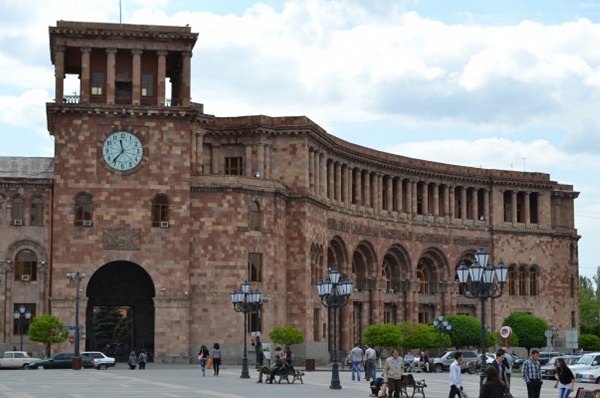We will be a parliamentary republic since spring 2018. Many people think that parliamentary republic will bring many changes to our lives, because the leader of the state will be not the President of the Republic of Armenia but the Prime Minister whose will and wishes will be meant to be fulfilled by the parliamentary majority.
If we approach the issue in essence, Armenia has always been a parliamentary republic, because the parliamentary majority has always supported the incumbent president, and the incumbent president has always “solved his problems” through the parliamentary majority.
In short, the problem is who will be the next prime minister of Armenia. That is what the parliamentary majority will decide, that is why they call it a parliamentary republic. That is, according to the new Constitution, the President of Armenia will be, as they say, the Queen of England in Armenia.
Many of course would like to be the Queen in Armenia, while only few will dare to propose their candidacy for the post of the Prime Minister, since to become Armenian Prime Minister they will have to collect the majority of votes of the Parliament.
That is, it is very clear that the current President of Armenia, Serzh Sargsyan has the most real chances to become the next Prime Minister of Armenia, for the simple reason that only he is able to receive the majority of the votes of the Armenian National Assembly today. That is, if the Prime Minister is to be elected today and at the moment, it will be the incumbent President Serzh Sargsyan. Serzh Sargsyan will not be elected as the Prime Minister only if he does not want to. But why should not he want?
Some oppositionists state that Serzh Sargsyan himself has said he does not intend to become a prime minister of Armenia. Even if he has said that we should not draw conclusions based on that statement, because we do not think Serzh Sargsyan intends to become a young retiree. One of the main merits of a politician and a state figure is how he can learn from his predecessors’ experience. Previous experience tells us that the parliamentary majority of National Assembly of Armenia has always voted obediently to the ruling party’s will, and there could be no alternative, especially now, because today’s National Assembly MP majority is the Republican Party of Armenia itself, the head of which is the incumbent president of the Republic of Armenia. Although the first president of the Republic of Armenia, Levon Ter-Petrosyan, had close relations with the ruling party of his time, but during his tenure he was not a de jure president of his party.
As for the second president of Armenia Robert Kocharyan, the latter did not deal with the ruling party at all. If you remember, Kocharyan tried to create a government of professionals, which, in fact, failed.
Remembering and taking all this into account we state that Serzh Sargsyan considers the lessons of his predecessors.
Voskan YEREVANTSI

























































